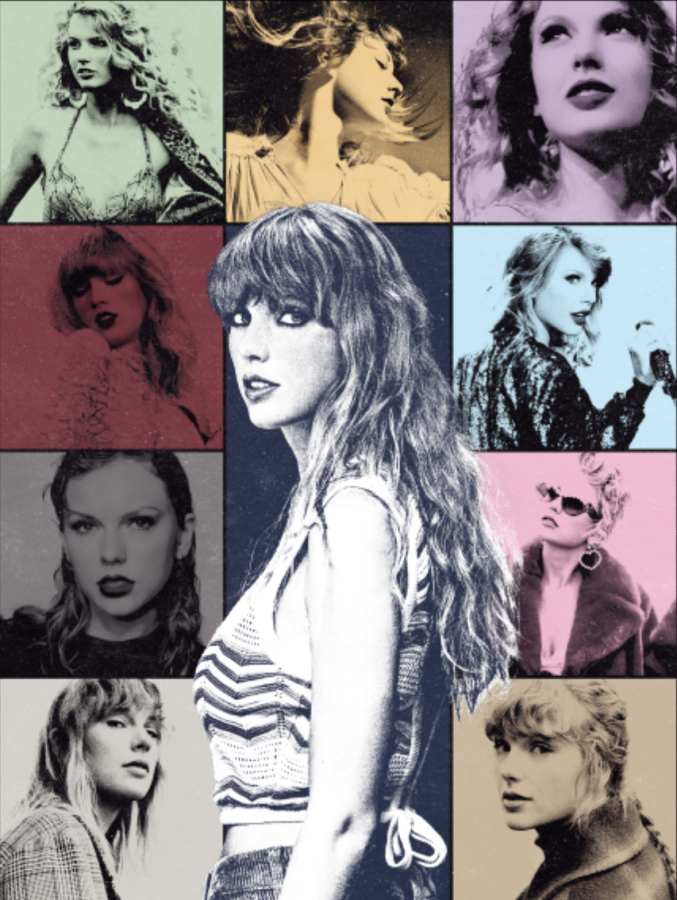Everyone hates Ticketmaster
Tickets for Taylor Swift’s Eras Tour are being sold on Ticketmaster for upwards of $1000. The tour’s presale event caused major technical problems on the Ticketmaster website.
November 15, 2022
When did getting concert tickets become so difficult?
Gone are the days of camping overnight in front of the local record store for $20 tickets and getting to know the people near you in line — after all, that’s who you’ll be seated next to during the show. Music always did have that funny way of creating possibly life-long friendships.
Then, the greatest obstacles were staying out of fights in line and staying warm on a particularly breezy night.
Now, we face a more daunting enemy: Ticketmaster.
The ticket sales titan has successfully ruined the experience of seeing live music with their greed and monopolization over the industry. In 2021, Ticketmaster sold 66% of all tickets, more than triple the amount of their leading competitor, StubHub.
Along the way, we’ve lost focus of the most important part of getting tickets: the music.
As I write this, the Ticketmaster website is hanging on by a thread as people are flocking for presale tickets to Taylor Swift’s Eras Tour.
The site has only crashed a few times and many fans have been waiting for hours due to “unprecedented demand” as if they weren’t the ones who sent out the presale codes.
Ticketmaster’s only job is to sell tickets, so why are they so bad at it?
The price of concert tickets has more than tripled since the 1990s. This is, of course, in part to inflation and more extravagant shows, but also in part to Ticketmaster’s “because I can” attitude.
The company exploits avid concert-goers and die-hard fans by jacking up prices to $600, $700 or even over $1000 for a ticket. Earlier this year, Bruce Springsteen fans were faced with a hefty $5000 price tag on concert tickets. These prices didn’t even include Ticketmaster’s service fees, which can reach up to 78% of the ticket price.
On top of their astronomical prices, Ticketmaster has also been known to hold up to 90% of tickets for the secondary market, including card companies, fan clubs and contests.
This leaves only a measly percentage of tickets for purchase, much of which are bought by the bots of professional brokers so they can mark them up to even more outrageous prices.
Backlash against unfair ticket sales is nothing new, though; in the ‘90s, Pearl Jam vowed to boycott venues that worked with Ticketmaster. In 2014, The Foo Fighters held their pre-sale event in person to prevent bots from picking up tickets to resell at an increased price.
Now, the fact that artists like Taylor Swift and Harry Styles have such large, dedicated fan bases magnifies what has been an on-going issue for years.
Fans are forced to put up with unreasonable prices and service just so they can see their favorite artists.
But it doesn’t have to be like this; it’s time to change the way we experience live music.
That said, I’m not suggesting that we need to go back to the ‘70s, sleeping on the sidewalk in front of the record store.
While that form of ticket sales can add to the essence of live music, it’s not accessible to everyone.
Instead, artists need to be held accountable for allowing this to happen with their ticket sales. Artists should implement practices that help combat unfair ticket sales by introducing more in-person ticket sales and working with venues independent of the juggernaut that is Ticketmaster.
Music fans have spent far too many years being exploited by corrupt ticket sellers like Ticketmaster.
It’s time to change the way we see live shows so we can focus on what really matters: the music.














